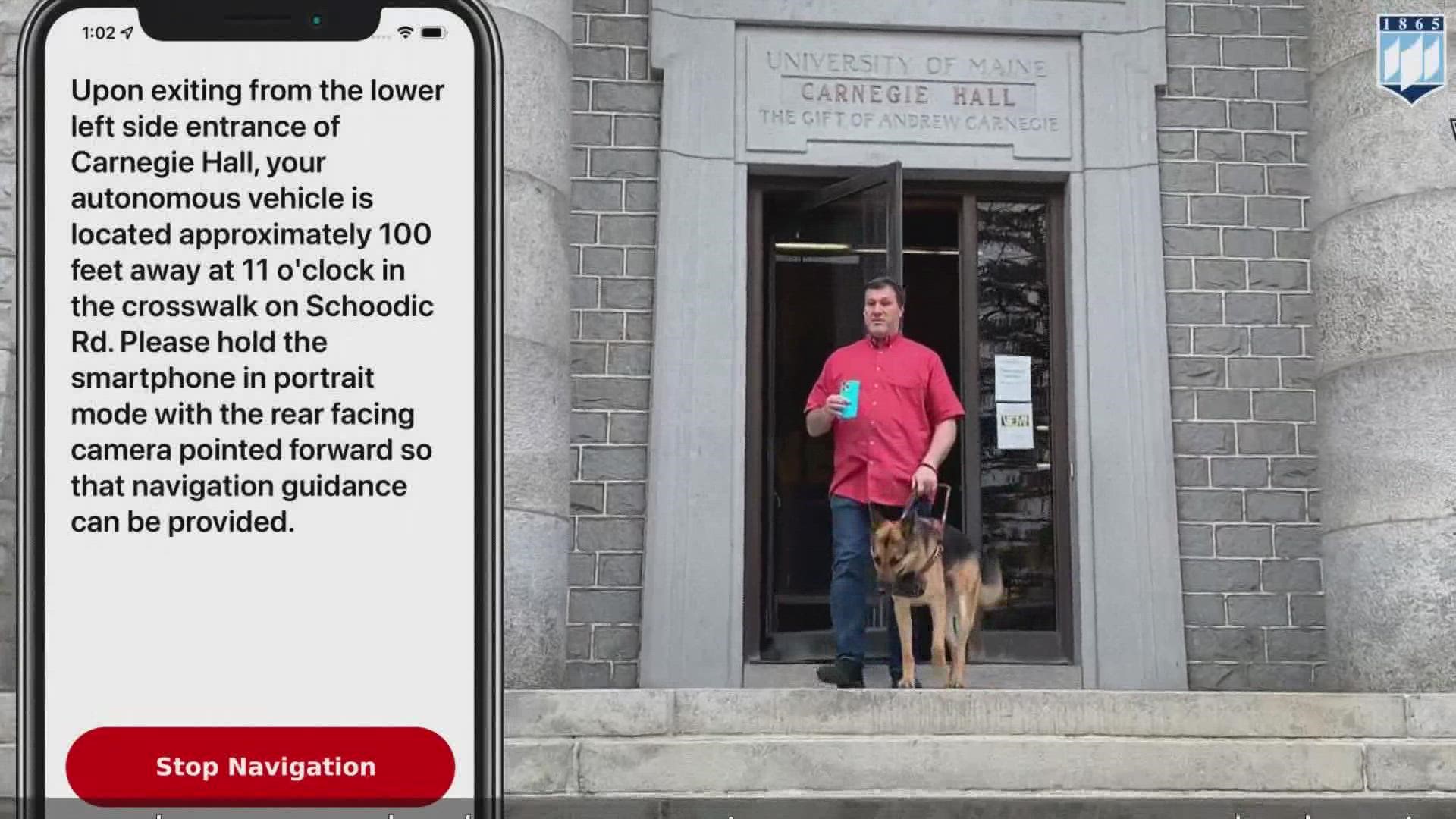ORONO, Maine — Researchers at the University of Maine are creating a technology that will make getting a ride more accessible.
The VEMI Lab at UMaine has created a technology that will make the process inclusive for people who are blind, visually impaired, or seniors.
The smartphone software provides navigational assistance for those who want to use self-driving cars for ridesharing services.
The software will help people request a ride, find, enter and exit the car, and travel to their destination.
VEMI’s Autonomous Vehicle Assistant (AVA) software earned third place in the U.S. Department of Transportation’s Inclusive Design Challenge, earning the lab a $300,000 prize and its researchers an invite to the White House.
On Tuesday, VEMI Lab Director Richard Corey, Chief Research Scientist Nicholas Giudice, and students virtually attended the White House ceremony from Carnegie Hall in Orono.
"As we move forward and we start to look at accessible communities and how we can make all sorts of riding inclusive to everyone, this [AVA] is really, really important,” Corey said. “The first step is how can we get everyone to their destination without any hitches.”
The VEMI Lab was co-founded by Corey and Giudice in 2008 with a mission to create innovative solutions to challenge technology. The pair started 14 years ago with an interest in how people navigate space using different senses. In 2018, the pair was interested in studying autonomous vehicles.
Giudice has a unique connection to this project, as he is congenitally blind.
“Normally, if I’m there with the dog, I’m like, 'Alright,’ you know we go out and talk to the driver and they say, ‘Hey we’re over here,’ and we know where to go,'" Giudice said. “If that’s no longer possible, how do we do that? AVA is this kind of the first end-to-end travel solution that’s really out there.”
Giudice also said the pair’s focus is to make an inclusive design that will work for other types of disabilities as well.
More NEWS CENTER Maine stories

